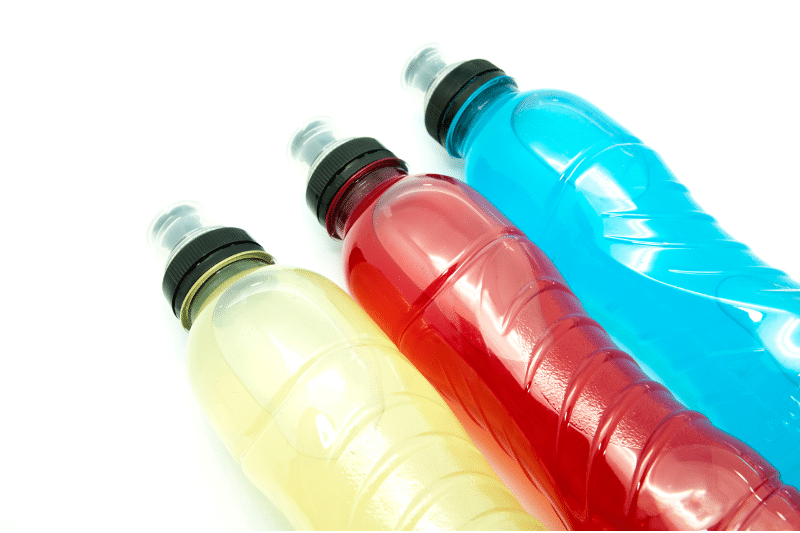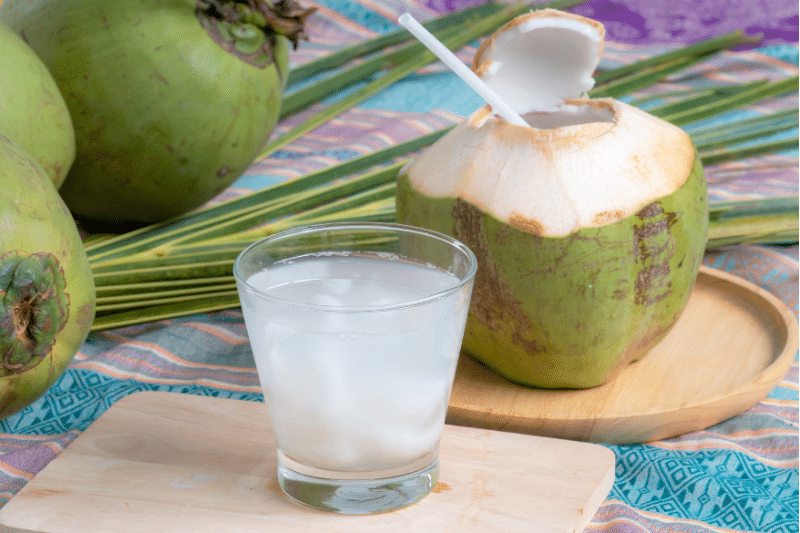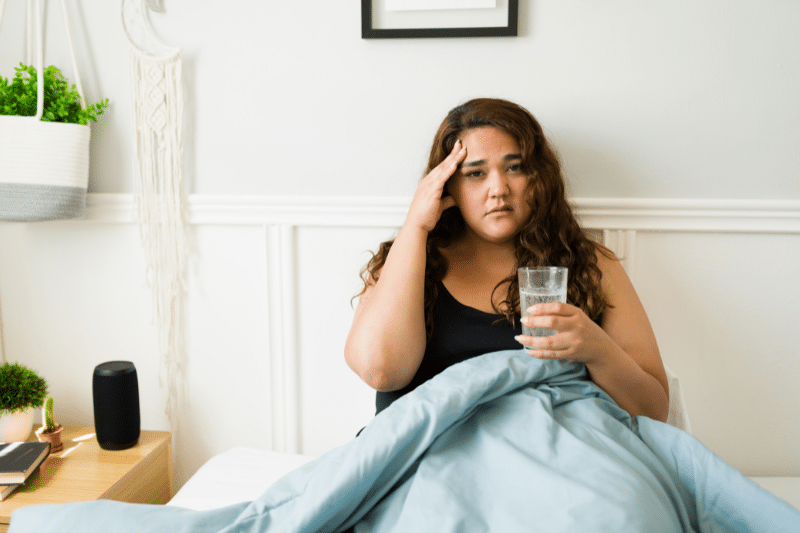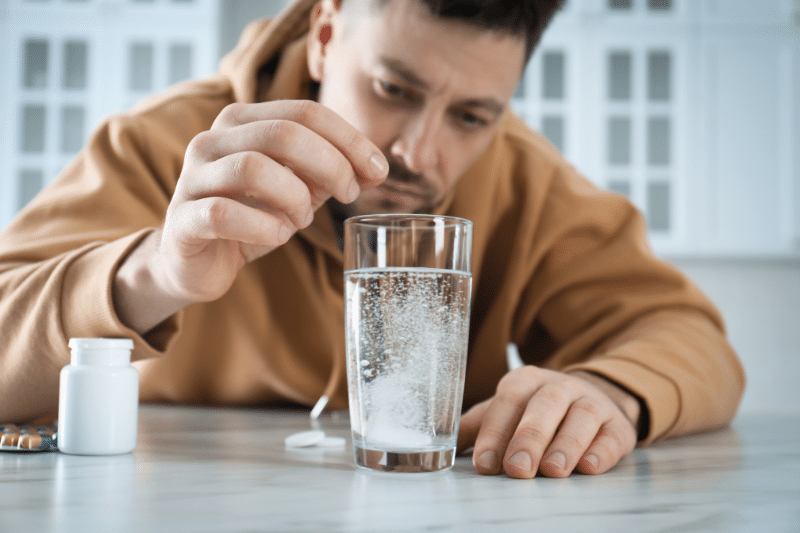Curing hangover, we’ve all been there, many of us far too often. A night of heavy drinking alcoholic drinks and the next morning you’re left with pounding headaches, upset stomach, pain, nausea, fatigue, and a general feeling of malaise, wondering if that extra cocktail was worth it. Fortunately, there are natural remedies and strategies to help alleviate the symptoms and get you back on your feet.
“According to the Scripps News, The US binge drinking problem increasing contributing to 1 in 5 U.S. adults between 20 and 49 dying from alcohol-related drinking issues.”
Thus we’ve curated the guide to cover everything you need to know about hangovers, from the symptoms to the cures. Also, debunk some common myths about hangover cures and give you science-backed insights.
Curing Hangover – The Insights
What’s the True Cure for a Hangover?
The honest answer is there is no magic cure for a hangover cure. A hangover is your body’s way of dealing with the aftermath of too much booze and its dehydration, electrolyte imbalances, and the build-up of to build-up acetaldehyde. Everyone’s experience of hangovers is different depending on just how much alcohol they drank, what they drank, and their body’s ability to process and metabolize alcohol beforehand.
Currently the best “cure” is time, hydration, and replacing lost nutrients. Your body needs time to process and eliminate the hair of the dog booze and your focus should be on supporting that process as much as possible.
How Long Does a Hangover Last?
Hangovers can last anywhere from 8 to 24 hours. In extreme cases, they can last up to 72 hours but that’s rare. The length of a hangover depends on how much alcohol you drink, your metabolism, hydration, blood glucose, blood alcohol levels, and overall health.
How Long Does a Hangover Take to Heal?
Your hangover symptoms should start to improve within 12 to 24 hours as your body processes the alcohol and the associated toxins. However, full recovery might take up to 72 hours, especially after consuming large amounts of alcohol. Hydration, restful sleep, and proper nutrition can help speed up this process.
Why Do I Feel Weird 2 Days After Drinking?
It’s not uncommon to feel off even two days after drinking. This lingering discomfort can be due to dehydration, disrupted or disturbed sleep and patterns, and the continued presence of alcohol and its byproducts in your system.
If you drank excessively, your body might still be recovering from excess alcohol or from alcohol consumption itself, and feelings of anxiety or general unease can persist as your neurotransmitters try to rebalance.

Curing Hangover – Quick and Effective Remedies
The first step to kicking a hangover is to hydrate. Alcohol is a diuretic, which means it causes you to lose more water than you take in. This dehydration contributes significantly to hangover symptoms. Drink water steadily throughout the day after drinking alcohol, and consider electrolyte solutions to replace lost minerals.
Rest is equally important. Your body needs time to recover, so take it easy and avoid strenuous activities until you’re feeling better. Additionally, eating a balanced meal with complex carbohydrates, protein, and healthy fats can help stabilize your low blood sugar levels and provide essential nutrients.
How to Get Rid of Hangovers Fast?
While there’s no instant cure for a hangover, certain strategies can help you feel better faster:
-
Hydration – Drink water, coconut water, or sports drinks to replenish fluids and electrolytes.
-
Rest – Rest as much as possible. Sleep helps your body heal and process the alcohol more efficiently.
-
Supplements – Some people find relief with vitamin B6 or B12 which helps with energy and cognitive function.
-
Food – Go for easy-to-digest food like toast, oatmeal, or a smoothie. Eat a nutritious meal. Bananas, eggs, and toast are great options as they provide vitamins, minerals, and protein to help your body recover.
-
OTC Medications – Consider taking an over-the-counter pain reliever like ibuprofen to alleviate headaches. Be cautious with acetaminophen (Tylenol), as it can strain your liver, which is already processing alcohol. If you have headaches or body aches, an anti-inflammatory like ibuprofen will help.
Can I Stop a Hangover?
Unfortunately, there’s no way to stop a hangover once it’s started. However, taking preventive measures before and during drinking can reduce the severity of a hangover
Can You Flush Out a Hangover?
While you can still drink alcohol and can’t “flush out” a hangover in the literal sense. Staying hydrated and urinating frequently can help your body eliminate alcohol and its byproducts faster. Additionally, drinking water or herbal teas throughout the day will support your kidneys and liver in processing and excreting toxins more alcohol.
Furthermore, fizzy alcoholic drinks can accelerate alcohol absorption due to the bubbles present in these alcoholic beverages too. Therefore, it’s best to limit their consumption.

What Foods Help with Hangovers?
Certain foods and alcoholic beverages can help ease hangover symptoms:
-
Bananas –Rich in potassium, which is often depleted after drinking.
-
Eggs- Contain cysteine, an amino acid that helps break down acetaldehyde.
-
Oatmeal – Offers a mix of complex carbs, vitamins, and minerals.
-
Chicken Soup – Hydrates and replenishes sodium and potassium.
- Toast or Crackers – Provide easily digestible carbohydrates that can raise blood sugar levels.
What Food Cures a Hangover?
There isn’t one specific food or one drink that can cure a hangover, but a combination of the above-mentioned foods can help alleviate symptoms and speed up recovery. Focus on easily digestible, nutrient-rich options that help balance your blood sugar, replenish lost electrolytes, and provide your body with the energy it needs to recover.
What Foods and Drinks are Good for Hangover Nausea?
If you’re feeling nauseous, consider eating:
-
Ginger – In any form (tea, candy, or fresh) can help settle your stomach.
-
Plain Crackers or Toast – Bland foods are easier on the stomach.
-
Bananas – As a whole or smoothie provide potassium. As well as nutritious and easy on the stomach.
-
Yogurt – Probiotics can help balance your stomach’s bacteria.
-
Apple Sauce – Light and easy to digest.
- Peppermint Tea – Soothes the stomach.
-
Clear Broth – Gentle on the stomach and hydrating.
-
Water with a Lemon – Hydrates and the lemon can settle your stomach.
What Fluids or Drinks for Hangover Recovery?
There’s no magic drink but the following can help:
-
Water – For rehydration.
-
Coconut Water – Natural electrolytes like potassium.
-
Sports Drinks – Replenish lost electrolytes but watch out for high-sugar and choose low-sugar.
-
Herbal Teas – Ginger, peppermint, or chamomile can soothe the stomach.
-
Fresh Fruit Juice – Like orange juice which has vitamin C and natural sugars.
-
Ginger Tea – Eases nausea and settles the stomach.
-
Bone Broth – Hydrating and nourishing with minerals.
-
Smoothies – Nutrient-dense, easy on the stomach, and natural sugars for energy.
What Drink Kills Hangovers?
No drink can “kill” a hangover but a combination of water, electrolytes and nutrient-rich drinks like a green smoothie can help alleviate symptoms.
What is the Most Refreshing Drink for a Hangover?
A cold glass of coconut water is both refreshing and effective in replenishing lost electrolytes, making it an excellent choice after a night of heavy drinking.

Curing Hangover – Managing Symptoms
What Makes a Hangover Headache Worse?
Hangover headaches are mainly caused by dehydration, the dilation of blood vessels, blood pressure, and the presence of acetaldehyde in your system. Factors that can make the symptoms of a hangover worse and these headaches worse include:
-
Lack of Sleep – Alcohol can disrupt your sleep, leading to poor rest and worsening your headache.
-
Continued Dehydration – If you don’t rehydrate adequately, your headache is likely to persist.
-
Noise and Bright Lights – Hangover sensitivity to stimuli like light and sound can make headaches feel more intense.
- Caffeine Withdrawal – If you’re used to consuming caffeine daily and skip it the morning after drinking, this can exacerbate your headache.
How Do You Get Rid of a Hangover Stomach?
A hangover stomach can be tricky to manage, but the following tips can help:
-
Eat Light Foods – Toast, bananas, or rice can be easier on the stomach.
-
Sip on Herbal Teas – Ginger or peppermint tea can soothe the stomach.
-
Stay Hydrated – Drink small sips of water frequently.
-
Avoid Heavy, Greasy Foods – They can aggravate nausea and stomach upset.
How Do You Get Rid of Nausea from a Hangover?
To quickly alleviate many hangover symptoms and worsen headaches and nausea:
-
Sip on Ginger Tea – Known for its anti-nausea properties.
-
Eat Small, Bland Meals – Bland foods can settle your stomach. Crackers, toast, or a banana.
-
Stay Hydrated – Drink water or an electrolyte solution in small sips.
-
Rest – Give your body time to recover.
How Long Does Hangover Nausea Last?
Hangover nausea can last anywhere from a few hours to most of the day. It usually peaks in the morning and gradually subsides as you rehydrate and rest.
Why Do I Throw Up When Hungover?
Vomiting during a hangover is the body’s way of expelling the toxins produced by alcohol. It’s a sign that your body is overwhelmed by the alcohol, and the stomach is irritated. Drinking too much alcohol that causes a hangover can also lead to a buildup of acetaldehyde, a byproduct of alcohol metabolism, in an empty stomach, which can make you feel nauseous and cause vomiting.
How to Calm Down When Hungover?
To calm down when hungover:
-
Practice Deep Breathing – This helps reduce anxiety and calm your nervous system.
-
Stay Hydrated – Dehydration can worsen feelings of anxiety and unease.
-
Eat a Light Meal – Stabilizes blood sugar levels.
-
Rest – Sleep can help reset your system.
What Helps an Upset Stomach After Drinking Alcohol?
For an upset stomach after drinking:
-
Ginger Tea – Soothes the stomach and reduces nausea.
-
Peppermint Tea – Calms stomach muscles and improves digestion.
-
Plain Toast or Crackers – Bland and easy on the stomach.
-
Yogurt – Probiotics can help rebalance your stomach’s bacteria.

Dealing with Hangover Headaches
How to Clear a Hangover Headache?
To clear a hangover headache:
-
Hydrate – Dehydration is a primary cause of hangover headaches. Drink plenty of water.
-
Take an Over-the-Counter Pain Reliever – Ibuprofen or aspirin can help, but avoid acetaminophen as it can be harsh on your liver.
-
Rest in a Dark, Quiet Room: Avoid bright lights and loud noises, which can aggravate headaches.
-
Eat Something – Food can help raise blood sugar levels.
-
Rest – Take it easy until your headache subsides.
What Reliever is Best for a Hangover?
Ibuprofen is often considered the best reliever for hangover headaches because it’s an anti-inflammatory that can reduce pain and swelling. However, it’s essential to take it with food to avoid stomach irritation.
Is Tylenol or Ibuprofen Better for Hangover?
Ibuprofen is generally better for hangovers because it helps reduce inflammation and pain without the risk of liver damage associated with acetaminophen (Tylenol), especially since your liver is already processing alcohol.
What Not to Take for a Hangover Headache?
Avoid taking acetaminophen (Tylenol) for a hangover headache. When your liver is busy processing alcohol, taking acetaminophen can increase the risk of liver damage. Also, avoid taking excessive doses of any pain reliever, as it can lead to stomach irritation or other side effects.
How Long Do Hangover Headaches Last?
Hangover headaches can last anywhere from a few hours to an entire day, depending on the severity of the physical symptoms of the hangover and how quickly you take steps to rehydrate and recover.

Curing Hangover – Recovery
How Long Does It Take to Recover from a Hangover?
The time it takes to recover from a hangover varies. Most hangovers resolve within 24 hours, but in some cases, it can take up to 72 hours to feel completely back to normal. Staying hydrated, eating nutritious foods, and getting plenty of rest can help speed up the recovery process.
What Medicine is Best for a Hangover?
The best medicine for a hangover includes:
-
Ibuprofen or Aspirin – To reduce headaches and body aches.
-
Vitamin B Complex – Some people find that vitamin B helps with energy and cognitive function.
-
Antacids – If you’re dealing with acid reflux or an upset stomach.
Can Anything Help a Hangover?
While there is no cure-all for a hangover, a combination of hydration, nutrition, rest, and over-the-counter medications can significantly alleviate symptoms. Prevention is the most effective strategy, so drinking in moderation and taking care of your body before, during, and after drinking is crucial.

Curing Hangover – Preventative Measures
To have one drink slowly avoid a hangover:
-
Drink in Moderation – The most effective way to prevent a hangover.
-
Stay Hydrated – Drink water before, during, and after drinking alcohol.
-
Eat Before Drinking – A full stomach slows the absorption of alcohol.
-
Pace Yourself – Limit the number of drinks per hour and avoid binge drinking.
-
Choose Your Drinks Wisely – Avoid drinks with high levels of congeners, such as red wine and whiskey.
Do Certain Drinks Cause Worse Hangovers?
Yes, drinks with higher levels of blood alcohol concentration and excessive consumption of congeners (chemical byproducts of alcohol fermentation) like whiskey, bourbon, and red wine can lead to worse hangovers compared to clear spirits like vodka or gin.
How Does Hydration Impact Hangover Severity?
Staying hydrated significantly reduces hangover severity. Alcohol is a diuretic, which means it causes your body to lose more fluids than normal. Drinking water alongside alcohol can help maintain hydration levels and reduce the risk of dehydration-related hangover symptoms like headaches and dry mouth.
What Foods Should You Eat Before Drinking to Minimize Hangovers?
Eating a meal rich in carbohydrates, fats, and protein before drinking can help slow the absorption of alcohol. Foods like:
-
Pasta or Rice – Provide a slow release of energy.
-
Avocado – Contains healthy fats that can line the stomach.
-
Chicken or Fish – Provides protein that helps balance blood sugar.

Excessive Drinking Myths and Facts
Several other alcohol consumption and alcohol hangovers and myths persist, including:
Myth 1 – Greasy Food Cures Hangovers.
In reality, greasy food can sometimes make you feel worse by upsetting your stomach further.
Myth 2 – Drinking More Alcohol Cures a Hangover.
This only delays the symptoms and can make them worse once the additional alcohol is metabolized.
Myth 3 – Coffee Cures Hangovers.
While coffee can help with drowsiness, it can also dehydrate you further, worsening some symptoms.
What Are Scientifically Proven Hangover Cures?
There are no scientifically proven serious hangover cure treatments or cures, but several methods are backed by science for alleviating symptoms:
-
Hydration – Replenishing lost fluids and electrolytes.
-
Carbohydrate-rich food – Helps raise blood sugar levels.
-
Sleep – Rest allows your body to recover.
Does Drinking Coffee Help or Worsen a Hangover?
Coffee can be a double-edged sword for hangovers. It may help reduce drowsiness and improve focus, but it is also a diuretic and can lead to further dehydration. If you choose to drink coffee, pair it with water to stay hydrated.
Can Frequent Hangovers Lead to Long-Term Health Issues?
Yes, frequent and severe hangovers can be a sign of chronic or alcohol use disorder, which can lead to long-term health issues such as liver disease, cardiovascular problems, and cognitive decline. It’s important to monitor your drinking habits and seek help if necessary.
How Do Hangovers Affect Mental Health?
Hangovers can significantly impact mental health, leading to feelings of anxiety, depression, and irritability. The “anxiety” that some people experience is due to the effects of alcohol on neurotransmitter levels in the brain, including serotonin and dopamine. These feelings typically resolve as the symptoms of a hangover subsides, but frequent heavy drinking and alcohol abuse can contribute to longer-term mental health challenges. The National Insititute on Alcohol Abuse and Alolochism (NIAAA) mentioned detailed findings on Alcohol’s Effects on Health.
While hangovers can be unpleasant. Regardless, understanding the causes and best practices for managing symptoms. Both can help you recover faster as well as prevent future hangovers. Moreover, improving sleep quality, and consuming vitamin C and B-rich foods can also treat nausea can headaches faster. Nonetheless, always drink responsibly, and if you find yourself struggling with frequent hangovers. It may be time to reevaluate your drinking habits and seek professional advice.











